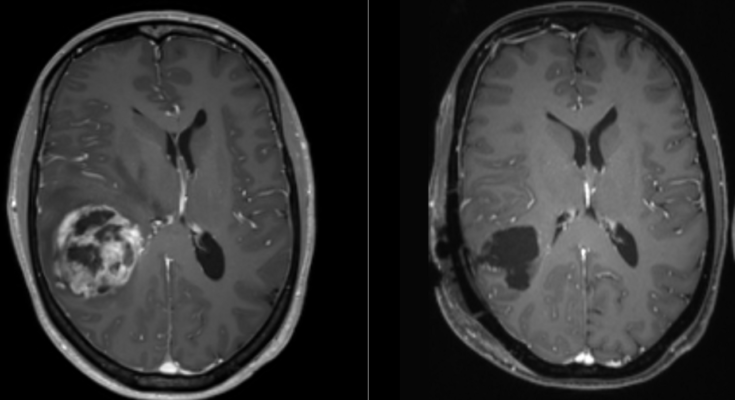A 72-year-old man, diagnosed with a very aggressive type of cancer known as glioblastoma, had brain scans that showed his tumor shrank significantly just days after treatment.
Two other individuals with a similar cancer diagnosis didn’t have such positive results, but the innovative treatment provides hope for people with this aggressive type of cancer. There is otherwise no known cure for glioblastoma.
Glioblastoma is one of the deadliest types of cancer. It starts from support cells in the central nervous system and quickly spreads, growing into cancerous masses. Moreover, up to 95 percent of people with glioblastoma don’t survive beyond five years, according to a study.
CAR T-cell therapy may help treat glioblastoma
Researchers at the Mass General Cancer Center in the US had the idea that a treatment called CAR T-cell therapy, which uses the patient’s own immune system, could work against glioblastoma.
This therapy, already in use for blood cancers, is efficient at finding and attacking cancer cells. The patient’s T-cells are extracted from their body, modified to spot specific markers on cancer cells, and then injected back into the body through infusion.
Oftentimes, with glioblastoma, there is a modified version of a protein called epidermal growth factor receptor (EGFR), which could be a target for CAR T-cell treatment. However, glioblastoma has different forms, making it difficult to modify T-cells.
A novel CAR T-cell therapy directed at EGFRvIII with a secretable EGFR T-cell engager produced rapid responses in three patients with recurrent glioblastoma, but the responses were transient in two of the three. Read the Brief Report for the full study: pic.twitter.com/CoZ4ynAZC0
— NEJM (@NEJM) March 13, 2024
To resolve this, researchers have determined how to stimulate CAR T-cells to produce antibodies that look for normal EGFRs, too. These proteins aren’t usually in brain cells but are in cancer cells. Hence, it offers an additional way to spot their target, according to ScienceAlert.
In lab tests prior to human trials, the T-cell-engaging antibody molecule (TEAM) therapy showed promising results by gathering T-cells at the tumor site and bringing in more T-cells to help fight the cancer.
The INCIPIENT trial, a phase 1 clinical study, aimed to ascertain if this treatment was safe and could be a helpful treatment for glioblastoma.
Human trials on 3 patients diagnosed with glioblastoma
Only three patients were chosen for the trial, all diagnosed with a type of glioblastoma.
The first patient, a 74-year-old man, had tried regular medicine and radiation for his tumor but relapsed a year later. After receiving an infusion of CARv3-TEAM-E T-Cells, the treatment began producing results. Just a day later, an MRI scan showed the tumor had shrunk significantly.
Within a few months, the first patient had to undergo surgery yet again because the cancer had begun spreading once more despite the earlier progress detected in scans.
There was a similar situation with a 57-year-old woman who had a large glioblastoma tumor on the left side of her brain. Her tumor almost disappeared five days after the therapy, but ultimately, it started growing again just a month later.
The third participant, the 72-year-old, didn’t show any signs of the cancer returning after the treatment. The only side effects were a fever and some small lung nodules, which quickly disappeared.
Because of these positive results, the researchers feel hopeful about continuing to study this new immunotherapy method, as reported by ScienceAlert.



